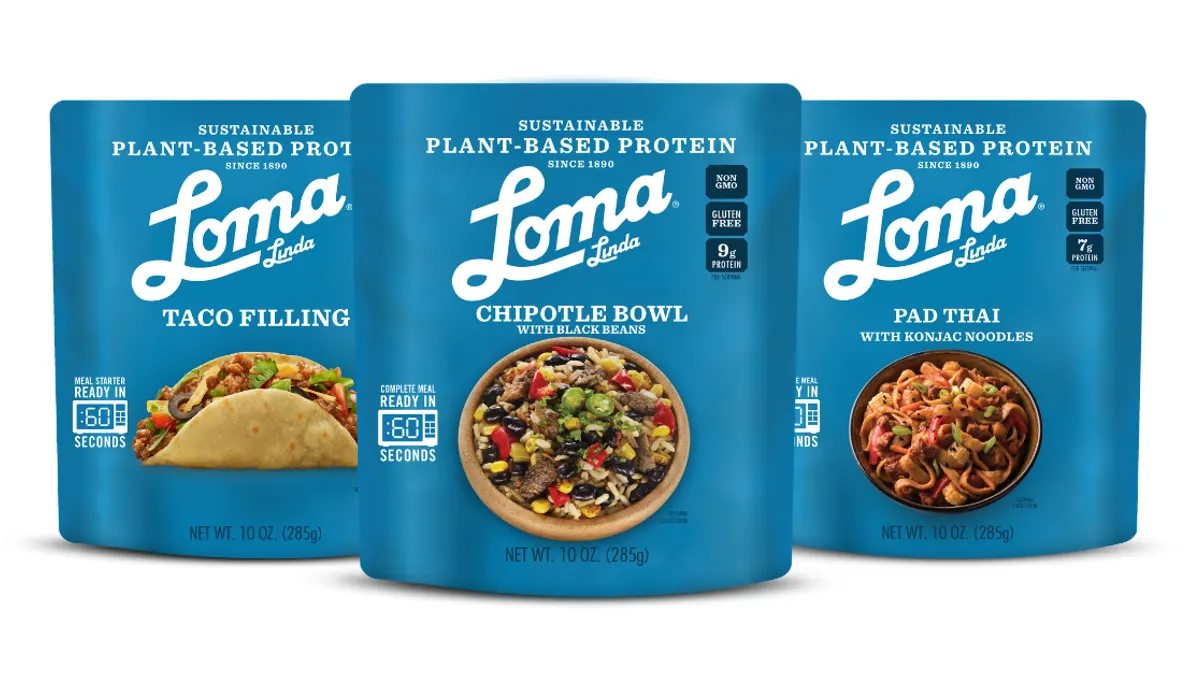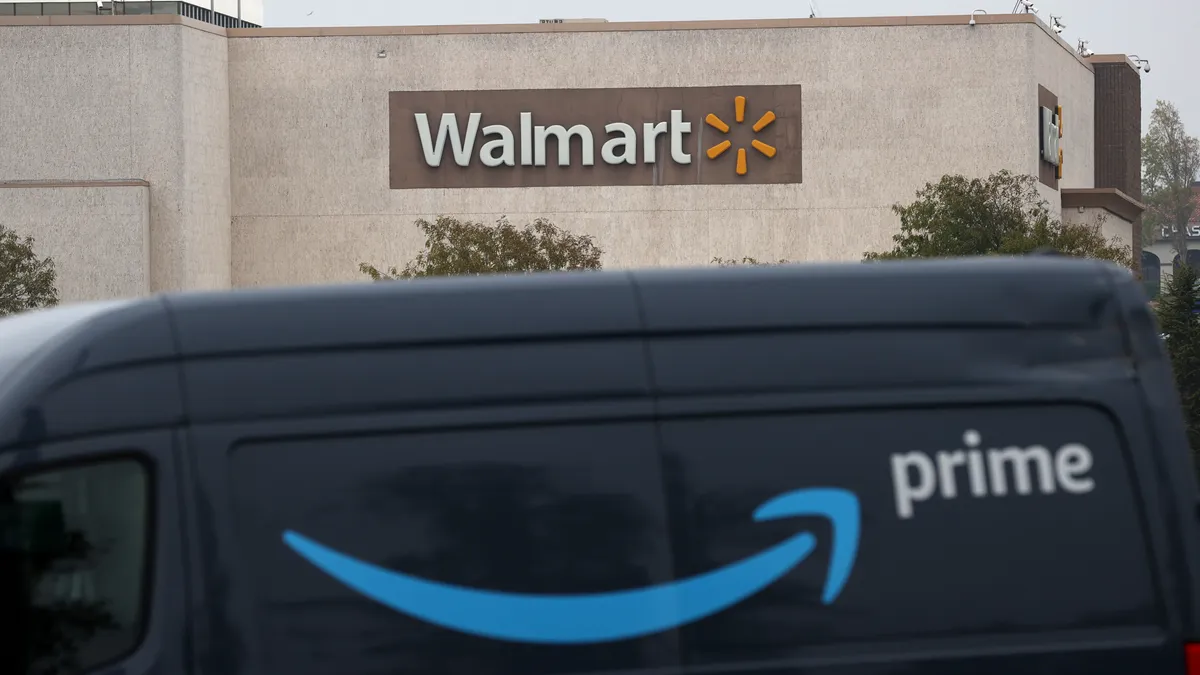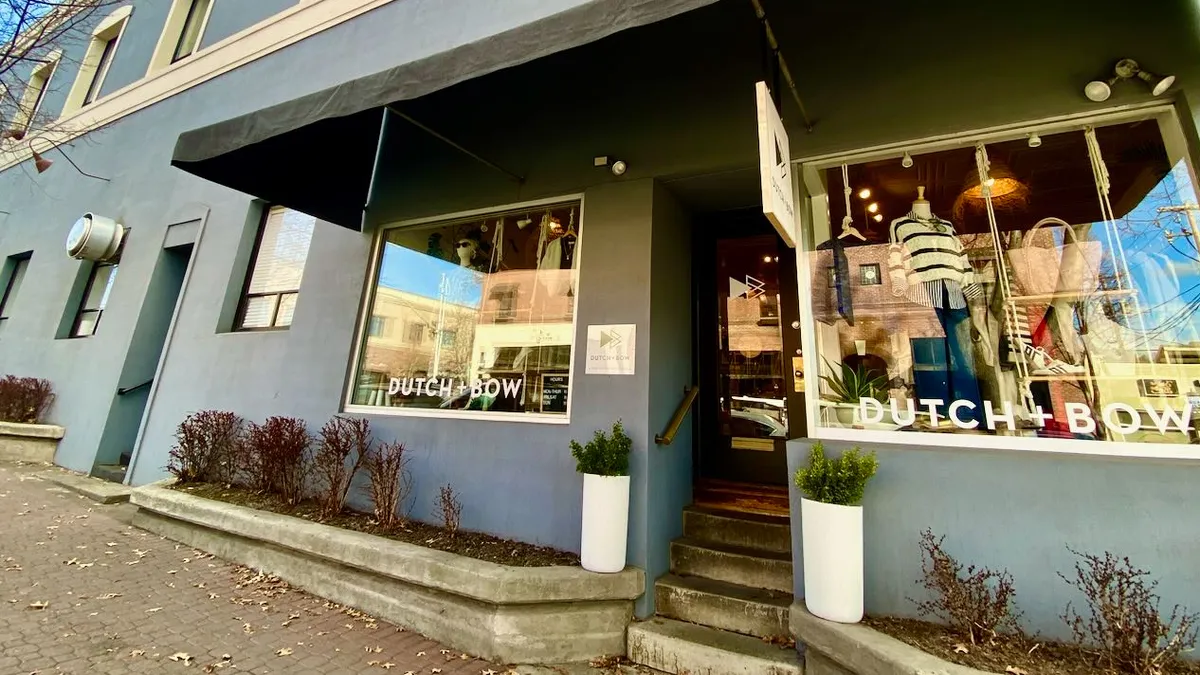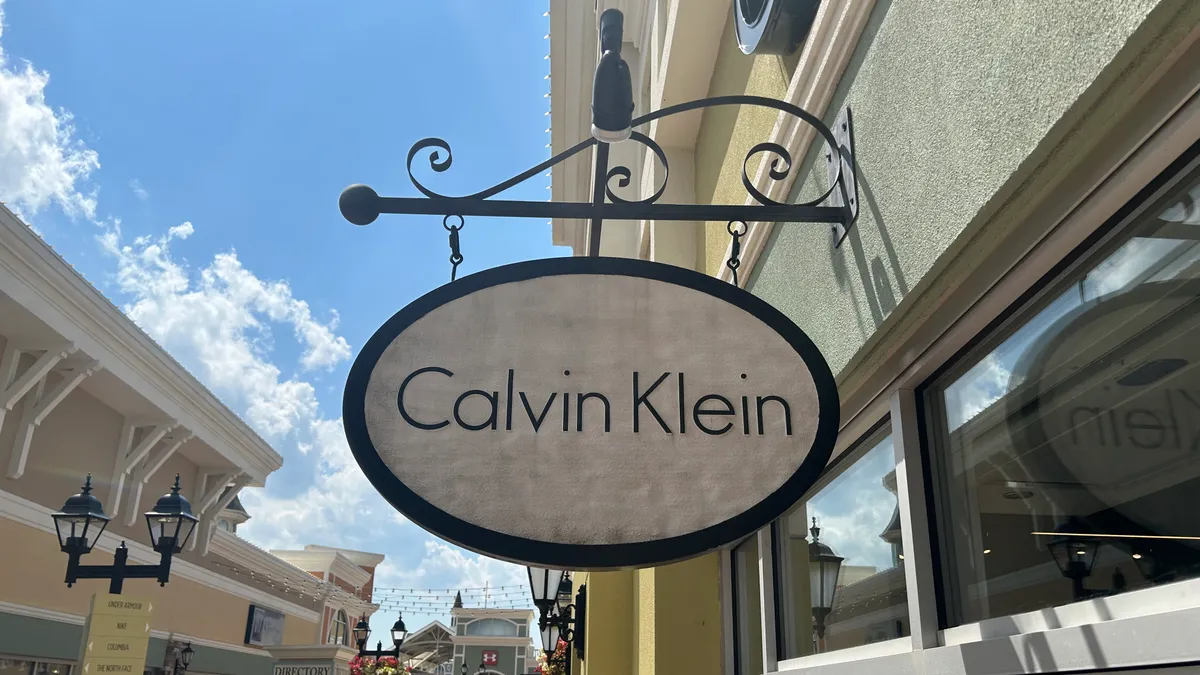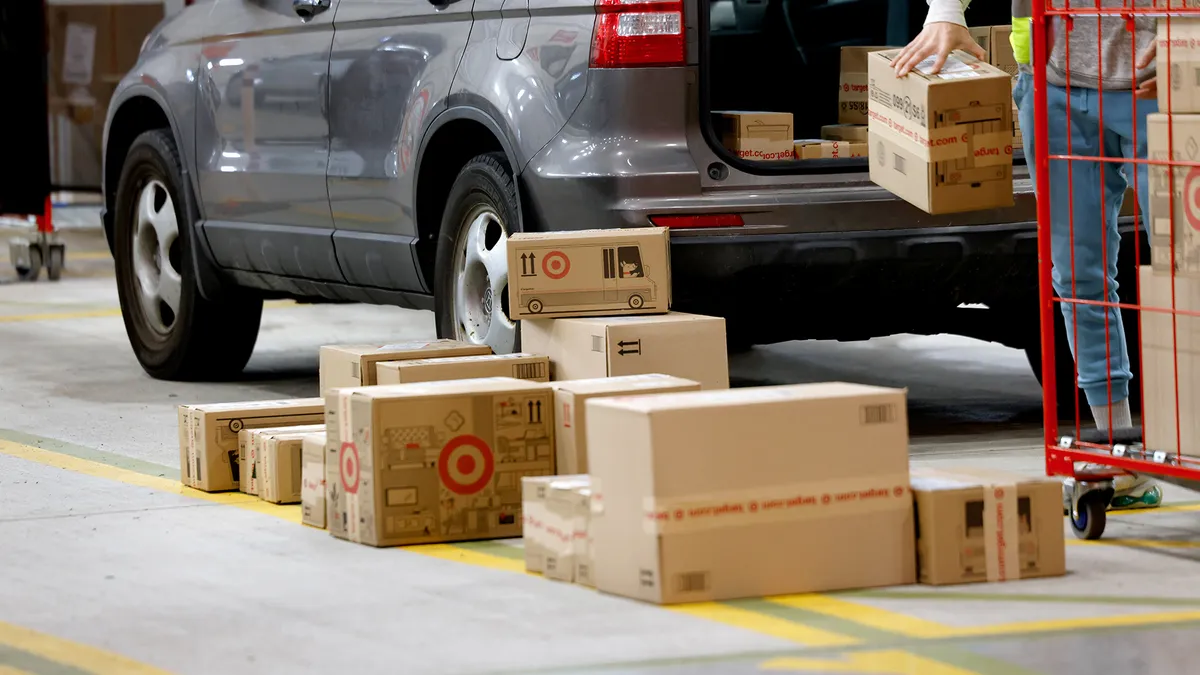When J. Douglas Hines, chairman of Atlantic Natural Foods, recently saw the CEO of Nestlé warning employees of an upcoming storm because of the pandemic, he thought the executive must have been listening to his thoughts because he'd been saying that for two months.
"I've been in the food business over 40 years and we've never had this before. This is a global situation. This isn't local; it's not a hurricane or an earthquake. It's a global crisis," Hines told Food Dive.
Hines said the shelf-stable manufacturer of plant-based foods including Loma Linda, Neat and Tuno brands was closely watching the novel coronavirus outbreak unfold across Asia and Europe, which helped prepare the brand for the increased demand in the U.S. Atlantic Natural Foods is headquartered in North Carolina, but operates a manufacturing facility and joint venture project in Thailand.
"I was telling my guys this is going to happen. Nobody believed me and my team. But we started beefing up our production," he said. In the facilities in Thailand and North Carolina, the company began implementing more overtime and greater sanitation guidelines.
"We were able to make rapid adjustments from the learnings that we had in Thailand and Asia, in order to be able to implement those same types of standards here," he said. "I believe that gave us help, and we got almost four weeks incremental production up before anything happened."
"I've been in the food business over 40 years and we've never had this before. This is a global situation. This isn't local, it's not a hurricane or an earthquake. It's a global crisis."

J. Douglas Hines
Chairman, Atlantic Natural Foods
Hines said a smaller company like his can have an advantage in these situations because it can pivot faster in adjusting to unprecedented environments than bigger ones.
"Where the big company CEOs are giving instructions out to the regional map, we've already made these changes. So that's the true advantage that we do have. Your people understand it, and they're all on board to make it successful," he said.
Despite its planning, Hines said it is a "true challenge" to keep up with the high demand the company is seeing. Atlantic Natural Foods has experienced more than 100% sales growth since the pandemic started.
Sales blow up
Analysts predicted that consumption of shelf-stable and frozen packaged foods will temporarily increase during the pandemic, and so far those expectations have come true. Sales of many foods shot upward in the four weeks ending on March 7, according to Nielsen data. Fresh meat alternatives, for example, increased 206.4% compared to last year.
All of the Atlantic Natural Foods' brands are plant-based, shelf-stable and are sold throughout the U.S and in 17 other countries.
Online sales just "blew through the roof" the last couple of weeks, Hines said, "Now we're seeing Amazon as well, it's just blown up." In fact, a recent massive order the company got from Amazon will be difficult to fulfill, he noted.
In-store sales started to pick up about a month ago.
Hines thinks this growth could benefit the company in the long term because more people will recognize the brands and potentially have sampled them. Hines said the company could see about a 10% to 20% increase in overall business as a result.
Preparing for demand amid coronavirus
In March, Atlantic Natural Foods said in a statement that it is complying with CDC guidelines and taking additional measures to protect its workers and manufacturing operations, including restricting access to anyone who is not an employee at its facilities. The company implemented that policy at its Thailand facility more than four weeks ago, and the practice proved successful in helping prevent the spread of the virus.
"We have a part of our supply chain in Asia because we ship all over the world. We closed it from anybody from the outside coming in, and we put strict guidelines and sanitation guidelines in place in mid-January. And since that time, we've had no incidences," he said.
Atlantic Natural Foods has 100 employees at its North Carolina facility and when it started to beef up production, Hines said leadership sat down with employees and told them what to expect.
"We told them it is our responsibility and announced our commitment that we have to provide food to our consumers and to America. Even though we're small, you're an important part of that," he said.
He said it is essential to communicate and make employees feel like they are a part of the effort.
Many big food companies, from PepsiCo to Mondelez, are offering extra benefits to employees as manufacturing plants ramp up hours and shift production schedules.
Hines said Atlantic Natural Foods has given workers a bonus of $100 every two weeks and is buying them dinner once a week for their families because it's important they keep operating. The company is also now paying a $2/hour bonus for all hourly employees and a "pandemic" bonus to supervisors and managers, but it didn't say how much.
"We are managing the workforce as we don't want them to be too tired and putting their welfare over incremental production. We have pooled the force and will try to alternate Saturdays, but it will be up to them. People and equipment need rest," Hines said.
The company also supplemented its current sick leave policy this year to cover basic pay for up to five additional days. This will give employees a total of eight days of sick leave on top of their paid time off.
Like other manufacturers, Atlantic Natural Foods has implemented greater safety measures, including increased hand washing, sanitizing and rotated temperature testing. Employees already had to wear masks and gloves in the processing areas.
There have only been a few issues so far. The company recently had trouble getting quinoa powder it uses from South America because of international shipping challenges, but he said the company is working through it and is now able to fly the product up. The company has been able to secure all the other raw materials its uses, Hines said, but supplies and distribution could still be a concern in the future because there is still so much uncertainty about how long the outbreak will last and what it will impact.
"We just don't know what's out there yet," he said.



